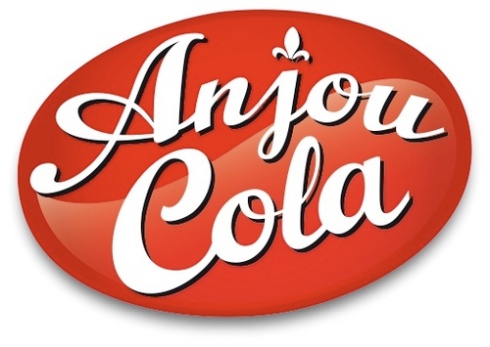
At the time it must have seemed a rather good idea to get the local fraud boys to call in on Olivier Cousin, finger his collar and to bang him to rights over various infringements of the vin de table rules, in particular the use of Anjou. A chance to put a provocative and outspoken vigneron in his place.
Whether the Fédération Viticole d’Anjou-Saumur and the INAO still think, after the conclusion of a legal action that has run for at least three years, that it was such a brilliant idea is an interesting question. True the Fédération did release an upbeat press statement following the verdict claiming victory. But the reality is surely rather different.
Although he has been ordered to pay a symbolic €1 to the Fédération and a similar sum to the INAO it is Olivier Cousin, who is the clear victor. After all the public prosecutor had asked for a fine of €5000. Clearly the judges decided that given the changes made to the Cousin labels since 2011 such a fine would be excessive and they listened instead to Eric Morain, Olivier’s impressive Parisian lawyer.
It didn’t help that the avocat, Alain Fouquet, representing the Federation and the INAO made a right pig’s ear putting their case and brought well deserved mockery on his head during the 5th March 2014 hearing.
If the Fédération effectively lost in court, it certainly lost by default in a larger forum – the world-wide web. They failed to realise that nowadays these cases can easily become a global cause célèbre and they made no attempt to put their case to a wider audience. Equally, as far as I am aware, there was no-one from the Fédération or the INAO to brief the press at any of the hearings before the Angers court.
In contrast Olivier and his supporters understood how to use the new social networks as well as the traditional media. This case has brought amazing and priceless worldwide publicity for Cousin and his wines. It has enabled him to contrast his biodynamic viticulture with the ‘industrial’ approach allegedly adopted by many AC Anjou producers as well as provoking questions over why the ingredients in wine are not listed as they are for many other drinks and foodstuffs.
Most importantly it has highlighted the debate over who owns brand ‘Anjou’, which is a debate that stretches way beyond Olivier Cousin. During the 5th March 2014 hearing Eric Morain claimed that ‘Anjou’ had been expropriated by appellation Anjou for their exclusive use and he challenged their right to this monopoly.
I suspect that French senator, Christian Béchu, who used to be the president of the Conseil Général de Maine-et-Loire and who is now the Maire of Angers, would agree with Morain as he has been keen to promote the idea of Produit d’Anjou’ for a number of locally made products in the face of opposition from the Fédération Viticole.
Béchu: “Je ne vois pas en quoi notre marque pourrait concurrencer l’AOC Anjou, réagit Christophe Béchu qui continue le dialogue avec les vignerons. Notre marque locale aura une résonance locale. L’idée est avant tout de favoriser les emplois locaux.” (9th January 2013)
The debate has already been running a number of years:
Utilisation du mot Anjou : différent entre vignerons et Conseil Général, bientôt le tribunal ?
Les vignerons tiennent à leurs appellations d’Origines Contrôlées Anjou et protègent leur « marque » comme la prunelle de leurs yeux. Anjou Cola par exemple ne les fait pas rire du tout. Viticulture et Conseil Général ont une vision de la notion de marque. Le tribunal devra-t-il trancher ?
http://www.saumur-kiosque.com/infos_article.php?id_actu=13860
Polémique. La marque « Produit d’Anjou » se heurte au veto des vignerons
‘Le conseil général, qui souhaite étendre sa marque « Produit d’Anjou » aux métiers de bouche ainsi qu’aux boissons, est en discussion tendue avec la fédération viticole du Maine-et-Loire qui craint une concurrence avec l’AOC « Anjou ». Un bras de fer « musclé » s’est engagé.’
La première initiative a été lancée en novembre 2011, en s’appuyant sur l’expérience menée par des horticulteurs angevins.
http://www.ouest-france.fr/polemique-la-marque-produit-danjou-se-heurte-au-veto-des-vignerons-346534
The conflict may well end up in court. Cousin’s symbolic single euro payment to the Fédération could certainly indicate that the judges are not very sympathetic their claim to an exclusive right to brand ‘Anjou’.



I never quite understood why the names registered for French AOC could not be used outside of the AOC, provided the three letters AOC or AOP are not on the labels. Can’t we read? Can’t we tell the difference? Or does this mean that the AOC/AOP has grown too weak?
There are at least two types of Camemberts: Camembert de Normandie AOP and Camembert without any other denomination. It does not seem to cause legal problems. Same for Brie de Meaux AOP, Brie de Melun AOP and « generic » Brie.
So who the INAO are fooling? After all, they are also responsible for cheeses.
Another example of their funny logic: when Sauvignon de Saint Bris became Saint Bris, they said a grape could not be included in the name of an AOC. And now they accept Picpoul de Pinet.
My advice for them is to stop treating consumers like they were morons. Let Cousin use the reference to Anjou, which was a province long before it became an AOP; provided he does not use the magic letters AOP/AOC on its labels or cartons. By the way, how come his wines are better than many that bear the three letters?
J’aimeJ’aime
I cannot fathom how any single group or entity can pretend to « own » a place name of any description. I am in favour of the protection of rights to use an appellation name, but this is always for a specific product which is in any case defined by its own decrees. Outside of that, the name Anjou (or any other place name) surely belongs to all people and producers from that place, whatever the product may be.
J’aimeJ’aime
Quite agree Hervé and David. Similar to Veuve Clicquot appropriating orange.
J’aimeJ’aime
Yes, or anyone appropriating a grape variety
J’aimeJ’aime
Du coup, je vais déposer le nom Carignan !
J’aimeJ’aime